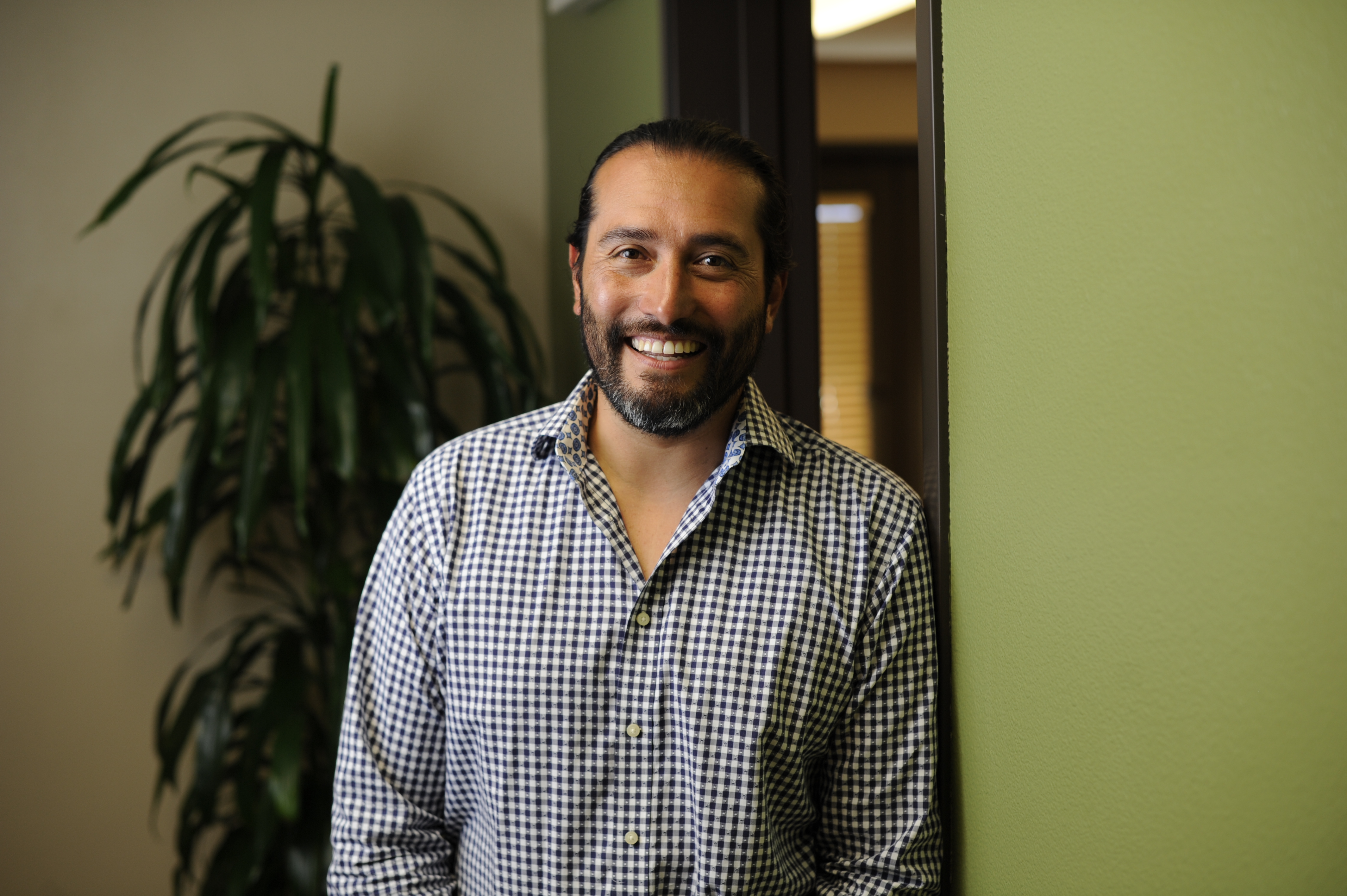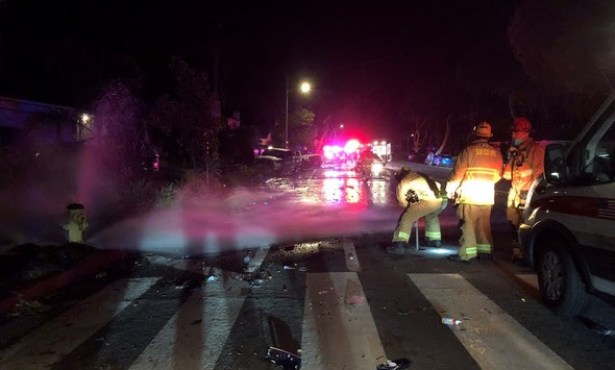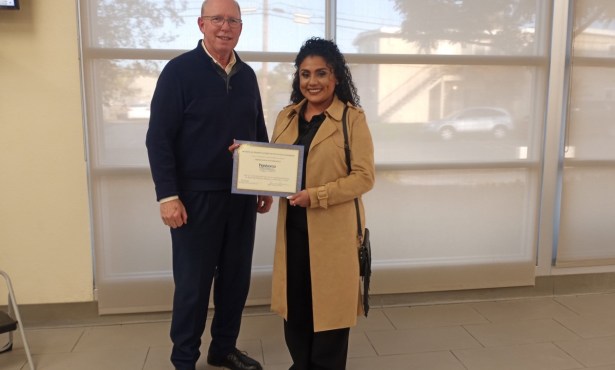Chumash Chair Reelected
It's Been a Busy Year for Kenny Kahn and His Tribe

Kenny Kahn won reelection last week after completing his first year as chairman of the Santa Ynez Band of Chumash Indians. Kahn ran unopposed after winning a special election last year after former Chairman Vincent Armenta unexpectedly stepped down. “I certainly am honored to have the confidence of the tribe from the beginning of the election process,” said Kahn, who has been a member of the Business Committee, the tribe’s five-member governing body, since 2003, when he was just 25 years old.
Under Kahn’s leadership, the past year has been monumental for the tribe. Last summer, the Chumash opened a new 12-story hotel expansion, adding to their portfolio of a casino, three hotels, two gas stations, and a winery. Earlier this year, the Bureau of Indian Affairs (BIA) granted the tribe’s application to annex the 1,400-acre Camp 4 property. The county and other valley groups have appealed the decision. Neighbors have expressed skepticism of the tribe’s plans to build more housing on the site, but Kahn reiterated that intention this week and pledged not to start construction for nine months to “calm the nerves of anyone in the short term.”
Earlier this month, the Chumash announced Representative Doug LaMalfa, who represents a Northern California district, reintroduced legislation to affirm the BIA’s decision to annex Camp 4 into federal trust. Meanwhile, Kahn, Vice Chair Raul Armenta, and county supervisors Joan Hartmann and Das Williams have begun meeting privately, a departure from the public — and contentious — forums that frayed nerves on both sides.
Another new element is the role of Congressmember Salud Carbajal, whose relationship with the tribe was considered friendlier than Lois Capps’s, his predecessor. As a county supervisor for the past 12 years, Carbajal consistently voted against suing the tribe over its annexation plans. “I have always said that the best outcome of the tribe and county is one that is reached locally, and I still believe in that,” Carbajal said this week of the bill.
Carbajal said he “understood” the tribe’s desire to pursue legislation but declined to say whether or not he would ultimately support the bill. “To say yes or no is not my posture at this point,” Carbajal said. “The reality is that it puts pressure on the parties to work in good faith to come up with an agreement.”
The Santa Barbara Independent spoke by telephone last week with Kahn about the latest with the tribe.
What is your election process? The election process is quite simple. It’s an absentee ballot system. Basically it’s over a two-week period. We have nominations at our council meeting, and from there the officer is nominated and presented on a ballot, which is sent out. Ballots are counted and officiated by a ballot commission and certified. Once our officers are officiated, we send in that information to the Bureau of Indian Affairs (BIA) for official records.
How many people vote? The voting members are the tribal enrolled members, which is around 140.
Did anyone run against you? I ran unopposed this time and I certainly am honored to have the confidence of the tribe from the beginning of the election process.
The BIA approved the tribe’s petition to annex Camp 4. What happens now? Camp 4 is in trust. Now the process is a six-year statute of limitation. Within that period if there are concerns it can be litigated.
What happens in the meantime with Camp 4? We certainly have a lot of time to plan for development. We actually had signed a declaration we will not build on that property for the next nine months. [We want to] calm the nerves of anyone in the short term, and we’re not in a position to put a shovel in the ground.
The formal talks with county officials have restarted after several months of a hiatus. The process changed. County supervisors Joan Hartmann and Das Williams are now on the ad hoc committee, and the talks are not open to the public, a process that tribal officials previously protested. What’s happening there? We’ve had our first of many meetings on [March] 16th. We’re very thankful of the new process, [which allows us to] talk with supervisors and throw out ideas once we get closer to an agreement. The new process is certainly beneficial. We’re thankful to the county to be more open to a better way.
Camp 4 is in trust. What leverage does the county have at this point? I can’t comment about what leverage they have. The new ad hoc members recognized the old process wasn’t working. I see more opportunity to understanding what the issues are. We can have an open dialogue that isn’t cut short. We have made progress with how to communicate with the county. From my perspective, I think it’s more constructive.
President Donald Trump appointed a new Secretary of the Interior, former Montana Congressman Ryan Zinke, and he’ll appoint a new head of the BIA. When will that happen and what could it mean for the tribe? I don’t know what the timing is going to look like [but] we feel confident that Zinke has a wealth of knowledge when dealing with tribes. In Montana, he had a couple tribes and he worked with one on legislation to achieve tribal sovereignty.
Rep. Doug La Malfa sponsored new legislation regarding Camp 4. How is it different from the past bill? The atmosphere has changed because now the land is in trust, so instead of putting the land in trust, it’s really going to be affirming the decision. It still has the same no gaming [clause]. It is important to note [because] it shows the tribe’s commitment to [building] housing. Our concern is that the community understands our commitment with that.
Have you heard any recent pushback from neighbors? I haven’t really heard a whole lot. It’s complex issue, so many different victories, appeals, litigation, legislation. I feel that it’s just a challenge for the folks to understand — is it in trust or is it not? We are doing the best we can with the county. Our commitment to mitigate is alive.
Do you think you’ve been able to quell frustrations of some neighbors since you were elected chair about a year ago? I’m sure the concerns are still there. I would think that the new ad hoc process is encouraging not only to the tribe but members of the community.
The lack of progress — was still don’t have an agreement after a year in a half — was frustrating. I’m sure the county representatives and community are sharing those frustrations.
There are two new members on the ad hoc committee, and the county has taken a different position on how we communicate. There is new opportunity on how we work together on finding a solution. I don’t like to say we started from scratch. There’s a new process. New representation. New content. We’re open minded and moving forward.
How is everything else? Things are solid. When it comes to our election, we have a full board that was reelected. I want to make sure people understand how we work as a team. It’s humbling to be the leader and provide direction but I really want to strongly emphasize how much they do alongside me. I get to take credit when it’s good and it’s bad but there are five of us who work hard on these initiatives.
What does the election of Donald Trump mean for the tribe? Will it change how you donate money? Tribes are bipartisan. We have strong relationships with both sides.
Our strategic giving is really based on issues. There is some funding that was built into the Affordable Care Act (ACA) that directly impacts the health clinic, which provides services at large — not just our membership base. So some of the funding that’s available through the ACA is an important component to how we’re able to serve the community. So we’re certainly impacted and concerned and engaged.



